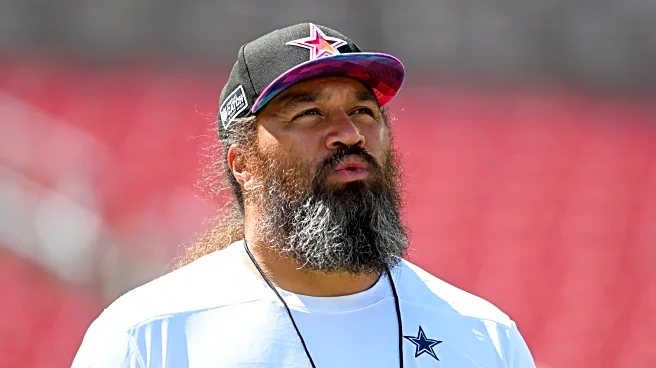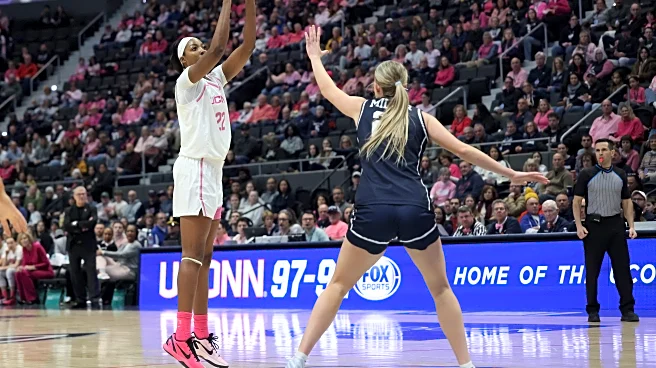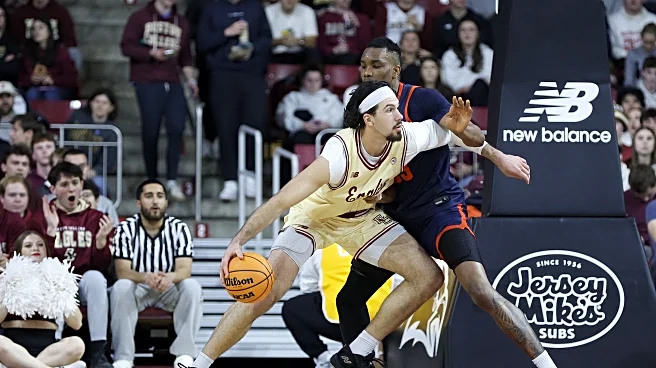What is the story about?
What's Happening?
The National League has announced that all fixtures on November 15 will start three minutes late as part of a campaign to secure a third promotion place to League Two. This initiative is supported by clubs in the National Leagues North and South, who will also participate in the delayed kickoffs. The campaign, known as '3UP', aims to address the current promotion and relegation system, which the National League argues is unfair to fifth-tier clubs. National League chair Jack Pearce emphasized the historical significance of the clubs involved and the widespread support for the change, citing a Football Supporters' Association poll where 93% of fans backed the proposal. The change would require a majority vote from the 72 EFL clubs and Championship clubs.
Why It's Important?
The push for an additional promotion place is significant as it highlights the ongoing debate over the structure of English football leagues. If successful, it could lead to increased opportunities for lower-tier clubs to advance, potentially altering the competitive landscape of the leagues. This change could benefit clubs financially and increase fan engagement by offering more teams the chance to compete at higher levels. However, it also poses challenges, as it requires substantial support from existing EFL clubs, which may be resistant to changes that could affect their own promotion and relegation prospects.
What's Next?
The campaign will culminate in the delayed kickoffs on November 15, drawing attention to the issue. The National League hopes to garner enough support from EFL clubs to bring the proposal to a formal vote. If the vote passes, it could lead to a restructuring of the promotion system between the fourth and fifth tiers. Stakeholders, including club owners, fans, and league officials, will likely continue discussions on the broader implications of such a change.
Beyond the Headlines
The campaign raises questions about fairness and equity in sports, particularly in how opportunities are distributed among clubs of varying financial and competitive standings. It also touches on the cultural importance of football clubs that have been part of communities for over a century, emphasizing the need for a system that reflects their historical significance.


















